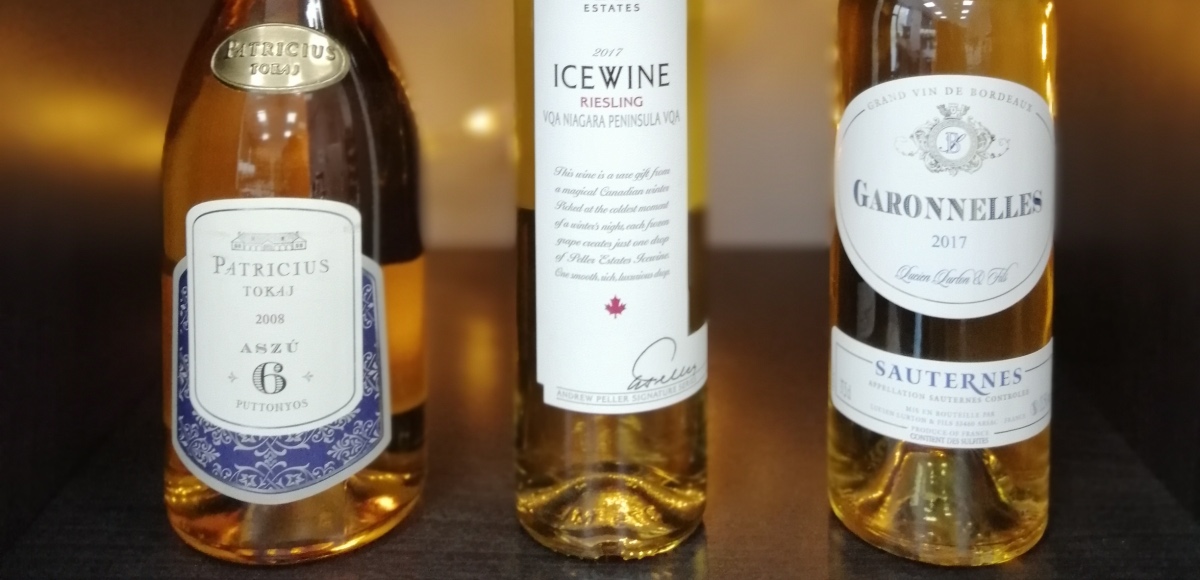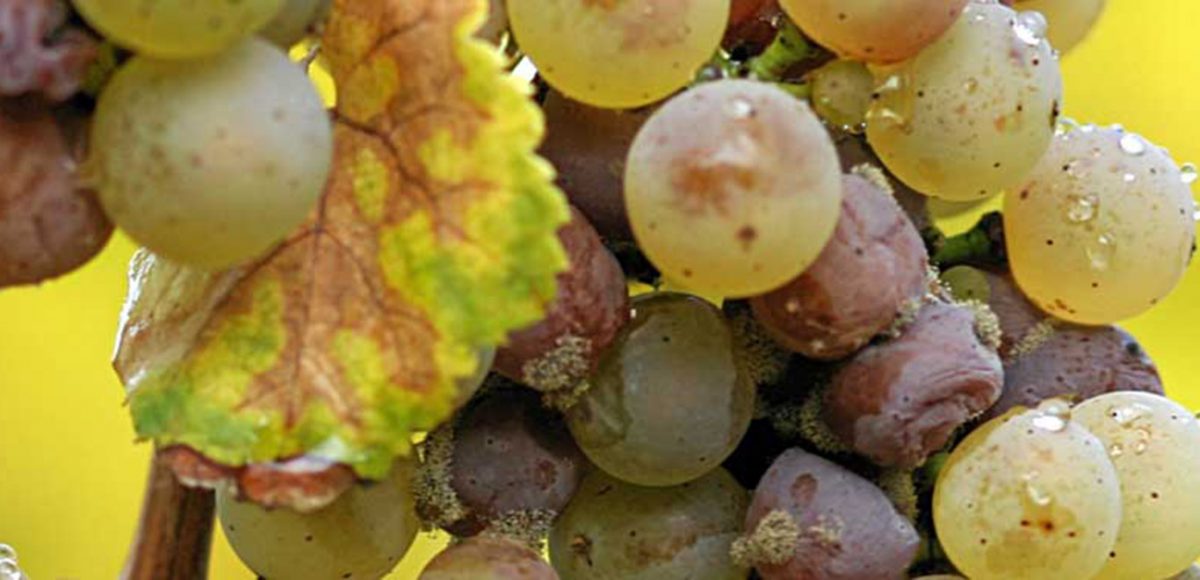Sweet wines are among the most delicious wines in the world. During the 19th century most wines were sweet, even famous reds from Bordeaux to Rioja. It is only in recent times that trends have changed. When I hold tasting and include a sweet wine, it will be the most popular wine among seasoned wine drinkers and those with less experience.
The principal categories of sweet wines are late harvest, fortified and ice wines. Probably the most famous sweet wine is Sauternes in Bordeaux. To make this wine the grapes are left on the vine until they are very ripe and they have to have been affected by a mould called Botrytis, which in certain conditions, grows on the grapes skins causing the berries to loose moisture and consequently concentrating the sugar, acidity and flavour. When picked the bunches of grapes look disgusting, covered in a grey mould. The grapes are picked individually, which is slow and labour intensive requiring pickers to go through the vineyard everyday over several weeks selecting grape by grape. The wine can be pure nectar, with flavours of honey, dried fruits and a crisp acidity.
Late harvest grapes affected by Botrytis in Germany and Austria are classified as Beerenauslese and Trockenbeerenauslese, made from Riesling. In Alsace ‘Sélection de Grains Nobles’, from Gewurtztraminer in Alsace are among the finest sweet wines in the world. Another classic sweet to add to you list of wines to try is a Tokaji Aszu from Hungary.
Among new world countries Australia produces very fine sweet botrytis Semillon. Growers in Chile make excellent sweet wine with Muscat as do the South Africans with Riesling and Chenin Blanc.
Another great sweet wine is Ice Wine made from frozen grapes. Canada, Germany and Austria, as you would imagine given their climates, are where these wines are made naturally. I say naturally because Ice Wine can be made by freezing the grapes in freezers, however, wines made in this way do not have the same intensity of flavours. It is risky leaving grapes on the vine months after the autumn harvest waiting for the winter to arrive. Tiny quantities are made and it is more expensive but worth it.
Sweet Sherry from Jerez, Port from the Douro Valley in Portugal and Madeira, from the island of the same name, are all made by stopping the fermentation with the addition of alcohol, known as ‘fortifying’, leaving most of the grapes natural sugars in the wine.
Sweet wines are considered by many as dessert wines when actually they make ideal pairings when served chilled with many dishes. If you enjoy sweet wine then you can pair it with any food you choose.
Although the classic sweet wines are among the finest wines in the world, in recent years they have fallen out of fashion, which is a real pity. Part of the problem is the negative press that surrounds sugar and calories. As wine consumers have become more used to dry wines, sweetness has become a negative term. However, while many people ask for a dry wine, they actually prefer wines that are slightly sweet.
A glass of sweet wine is wonderful at any time of year, so go on indulge yourself.








